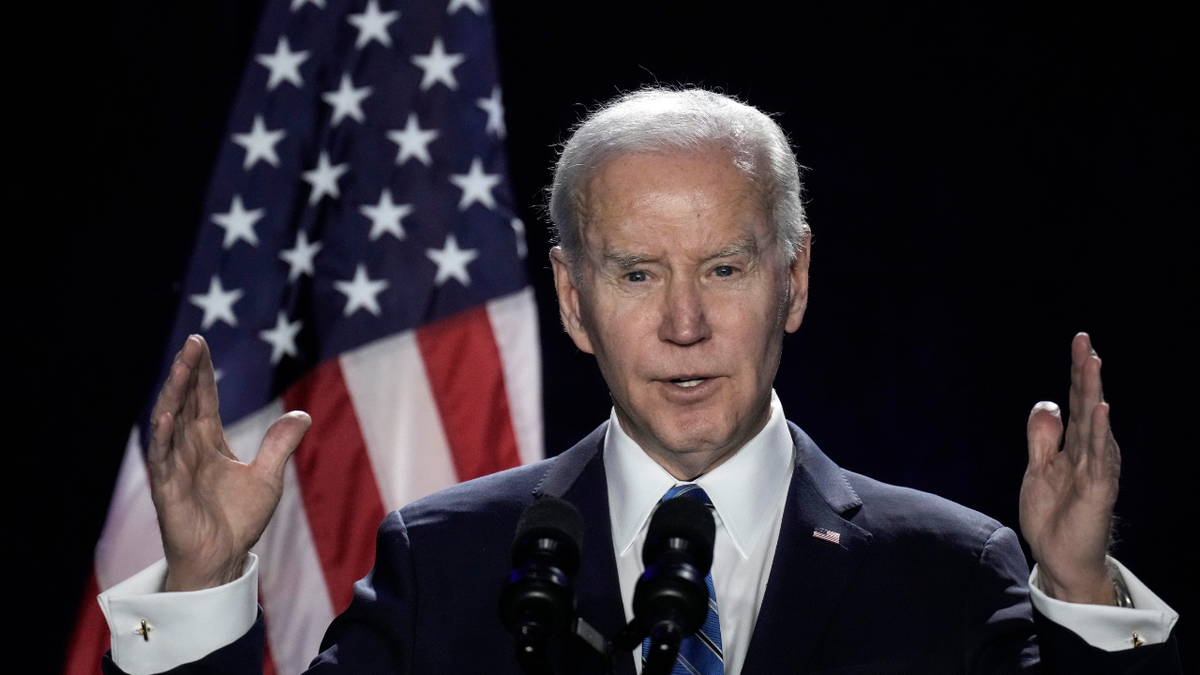Rep. Mike Waltz issues warning on intel leak: 'Haven't learned our lessons'
Rep. Mike Waltz, R-Fla., joined 'The Faulkner Focus' to discuss the fallout from the massive intel leak and the national security implications of the incident.
We learned last week that recent leaks of highly classified information, with significant information not publicly known about the defense capabilities of Ukraine and Taiwan, reportedly originated from a 21-year-old member of the Massachusetts Air National Guard stationed at Fort Bragg. This guardsman is accused of illegally posting classified information on an online gaming chat group, apparently to impress members of this group about his access to U.S. government secrets.
As someone who held top secret and higher U.S. security clearances with several government agencies, I take these leaks very seriously. I have not seen images of the leaked classified documents, but a reporter has described them to me.
I understand these documents included the Joint Chiefs of Staff "J2 Intelligence Daily," a daily top secret publication containing summaries of raw intelligence, analysis and graphics on international security issues. An estimated 5,000 people across the U.S. government read this publication. I read it regularly when I held positions with the CIA, DIA, State Department and the National Security Council.

This photo illustration created on April 13, 2023, shows the suspect, guardsman Jack Teixeira, reflected in an image of the Pentagon. (Stefani Reynolds/AFP via Getty Images)
The Washington Post reported that at least one of the leaked documents was printed from "Intellipedia," a Wikipedia-like classified platform. Because the leaker had access to both Intellipedia and the J2 Intelligence Daily, I believe he probably accessed these documents through Intelink, an Intelligence Community internet where U.S. intelligence agencies post their products and exchange information.
PENTAGON LEAKS REVEAL BIDEN'S UKRAINE WAR LIES AND WHAT MAY HAPPEN NEXT
Intelink provides access to thousands of Intelligence Community websites. Approximately 1.3 million people hold top secret clearances, 100,000 of whom work for the U.S. Intelligence Community. Tens of thousands of these individuals – possibly many more – have access to the top secret version of Intelink.
The recently leaked information reportedly included assessments of Ukraine’s defense capabilities, U.S. spying on allies, American pressure on other states to provide military aid to Ukraine, and analysis of the political situation in Israel which could seriously damage U.S. and global security. Because these leaks raise questions about the U.S. government’s ability to safeguard national security information, they could further discourage American allies to share intelligence with the U.S.

President Biden speaks at the House Democratic Caucus issues conference In Baltimore. (Drew Angerer/Getty Images)
But the most critical question that the Biden administration and Congress must confront about the leaks is why so many government employees have access to so much sensitive intelligence.
Why did a 21-year-old Massachusetts Air National Guard member have access to top secret intelligence on the Ukrainian military, U.S. spying on Russia, and sensitive intelligence sources and methods? Why do thousands of U.S. government employees have easy access to such highly classified information, which they do not have a need to know, through an Intelligence Community internet?
I watched the number of high-level security clearances grow throughout my 25-year career. Part of this problem was due to the growth in the number of U.S. intelligence agencies, which now numbers 18, and a related huge surge in the number of intelligence employees. Sensitive intelligence also is now shared too often and too easily through online classified computer systems like Intelink.
CLICK HERE TO GET THE OPINION NEWSLETTER
I also was alarmed at the growing number of U.S. government employees who had access to extremely sensitive above the top secret intelligence level (that I cannot further describe here), which they had no need to know. The compromise of this information could have grave consequences for U.S. national security.
The U.S. government needs to do a better job vetting people for access to classified information, conducting outreach efforts to press clearance holders to honor their agreements to protect classified information, and performing investigations of leakers and to extend clearances.
Valid questions can be asked about overclassification and whether too many restrictions on sharing classified information between U.S. government agencies could create another pre-9/11 scenario.
CLICK HERE TO GET THE FOX NEWS APP
Congress and the Biden administration can address these questions while significantly restricting access to sensitive U.S. intelligence to a strict need-to-know basis. A more significant and more difficult problem is the surge in the number of intelligence agencies and personnel.
A serious response to the recent intelligence leaks should also include a plan to streamline and downside America’s bulging intelligence agencies to produce a leaner, more efficient, and more secure U.S. Intelligence Community.
CLICK HERE TO READ MORE FROM FRED FLEITZ
The CIA Prepublication Classification Review Board cleared this article for publication without changes.












































